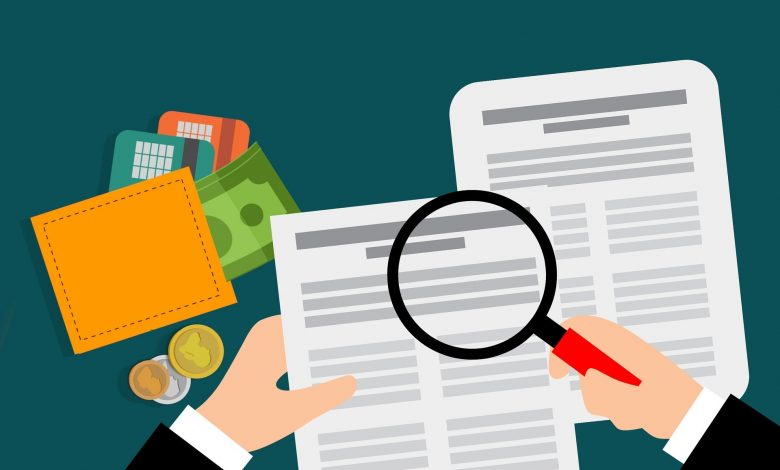How to Make Sense of Your Credit Report

Whether you are thinking of buying a home or a new car, when you approach a lender for a loan or a landlord for a new lease, you will find that it is your credit score that seems to carry more significance than you do. When you are approaching someone who doesn’t know you and want them to strike a big deal with you or lend you money, they are going to need some evidence that they can trust you enough to go through with it. Your credit score is this evidence, and this is why it is so important.
What Is a Credit Score?
Your credit score is a simple, no-frills numerical score that tells people more about your financial habits – in particular, how responsible you are with your finances. That’s because the score reflects the net effect of all your financial activities over the year. However, the score itself can’t quite reveal much more about your financial health. It is your credit report that does this, which is why it is often described as your financial health report card.
The credit score is a numerical value that is derived from the sum and substance of the activities that your credit report shows. In short, it is a summation of your current financial health.
Many people often confuse credit scores with credit reports. The credit score is a three-digit number that is not printed on your credit report. It is calculated by applying a certain formula to the information about your financial health from your credit report. If you have a good credit score, you are considered a good risk by lenders, so you would get lower interest rates if you go shopping for a loan. It also gets you some great deals on credit cards. Note that there isn’t just one credit score, and the score is calculated differently by different agencies. Ultimately, it is your credit report and the information in it that makes your credit score attractive or abysmal.
Additionally, there are other aspects of your life besides just financial that will be interested in checking your credit report; Your credit report may also be relevant to your potential employer. Big businesses often check employee credit reports as part of the initial check of credentials before they offer a job. They can get access to a less detailed report than you can see, but this report also gives the details of your financial liabilities and a good glimpse into how well you are managing them. A credit report that indicates that you have limited debt and that you are managing it very well with regular payments may tell a prospective employer that you would make a responsible employee. Especially with jobs that involve financial responsibilities, employers usually make it a point to check your credit report. The weight your credit score can have on your entire life makes it an important number.

Where Your Report Comes From
If you are already quite intimidated with all the confusing information about your credit report, here is one more insight that is sure to boggle your mind – you have not one, but three credit reports to worry about. Equifax, Experian, and TransUnion are the three major credit bureaus that all get information from various public records and the people you have financial transactions with, and they collate relevant information to make your credit report. For example, if you have defaulted on a loan, the lender makes sure that these credit bureaus get the information. The bureaus can also access information about bankruptcy or liens from public records and courts.
The credit bureaus sell this information to those who have reason to want to know your financial health – say a potential lender or an existing lender who has already given you a loan and wants to know if they should offer another. Your potential employer may also look at your credit report, but they can do so only with your written permission. The same goes for your landlord as well. What you also need to know is that the three bureaus do not share information with each other about your finances.
These three national credit report bureaus do have a comprehensive record, but still, there may be differences in your credit reports from each if you compare them side by side. Take a look at why your credit reports from the three bureaus may not match exactly:
- An entry that is included in one report may be missing in others if the company/ person has not made the information known to them.
- The same information may be presented in different ways in the three reports, and that may mislead you into thinking it has not been factored in.
- If you have applied for credit under a different name earlier, then your current report may not reflect it. (Usually, they find out all the different names you have used though.)
- Your lender may report the data to each bureau at a different time, so the information that one has may not have reached another yet.
Do note that, apart from Experian, Equifax, and TransUnion, there are other, smaller bureaus that track your credit and make credit reports too, but these three are by far the most widely used and trusted bureaus, so they are also the ones most significant to you.
Each of these bureaus gives you your credit report once a year free of cost; that’s mandatory. You can also ask for it whenever you need to look at it. If you have made a request for a loan and have been turned down by the lender, you can ask for a free credit report within 60 days of the refusal. However, if you want to look at your credit report more often, you will have to pay up a fee. You can also ask the bureaus for your credit score.
Checking Your Credit Reports
Since your credit score hinges upon your credit report and you also may have employers or lenders looking at the credit report, you want to make sure that it displays absolutely accurate information about you. A study has shown that one of four Americans find an error in their credit report that influences their credit score. You don’t want that happening to you, especially if it is lowering your credit score. To ensure that your credit report reflects your financial state correctly, you should check it thoroughly at least once a year and ensure that all the transactions reported there have actually been carried out by you. If you have a doubt that one of your reports is accurate, ask for it immediately and check it. If you find an anomaly or error, write to the relevant credit bureau immediately with evidence of why the entry is wrong and follow up to make sure it has been corrected. Do this in writing and keep copies of it for proof.
Getting your hands on your credit report is easy thanks to annualcreditreport.com, which is sponsored by the three credit bureaus. You have to go through an elaborate process of verification on the site to get access to your report, so you need not worry about the wrong person seeing your reports by merely entering a few correct details. Make sure you are on the right site because there are fraudulent websites with very similar names that can steal your private data and misuse it.

Making Sense of Your Credit Reports
Your credit report has four major sections in all. Let’s look at each in detail:
Identification
As the name suggests, this section has all the information needed to identify the person whose financial health is reflected by the report. Here you have your name, address, social security number, date of birth. If you have applied for credit earlier under another name and that has been recorded, the other name would be recorded here as well. Sometimes, a name may be missing, and in such cases, the data pertaining to that name will be missing in the report as well.
Don’t overlook this information, assuming that it has to be right. Take care to check that all of it is accurate so that you don’t end up having someone’s else debt’s showing up against your name on your credit report. If such an error is appearing on the report, get it corrected immediately.
Creditors and Tradelines
This section has a record of all of your credit accounts. It has details about the lender, the total amount owed, the status (current or closed), and whether there are dues – either current or old. If you have taken any loan or line of credit or owned a credit card, those details would appear here. Remember that it is not just the ones that are currently active that appear, but also ones that were active until recently, as long as the lender has reported them to the bureau.
The grouping here may be done in such a way that all the open accounts appear together and the closed ones together. The accounts that you have paid off in full at the time of the report would be grouped together and those that are unpaid, like the negative accounts, may all appear together.
This is quite a detailed section with information about how and when you have repaid your various dues. A look at this section tells you how responsibly you have managed your debt. You can also find out with a quick glance how much you owe, as per the report.
Since this section also contains your payment history over the past two years, this is perhaps the most significant part of the credit report if your purpose is to gain control over your financial life. Many late payments tell you that you have not kept track of it well enough, and that could be the reason why your credit score is low. Payments on time tell you that you are well in control of your debt.
Every account comes with the status marked out clearly. Even those that have now been closed will remain on the report for a long time – usually seven years if the account is negative and ten years if it is a positive account.
Public Records
All the information in public records appears in this section. You will find information about your financial transactions/financial condition from the state and country courts also in this section. If you have filed for bankruptcy or have a lien on any asset of yours, it would appear here. Remember that, if you opt for foreclosure or there is a wage attachment or a judgment that is pertinent, that too appears here and impacts your credit report.
Credit Inquiries
If anyone requests your credit report, this is where you can find out that they did. Lenders, business people, and various companies that offer you credit all may request your credit report from the agencies. Anyone who saw the report in the past two years is listed here.
When lenders ask for your report before they offer some kind of credit line to you on their own, those requests are called involuntary requests. Those do not have any impact on your credit score. However, with voluntary requests, too many of them too close together may impair the credit score. A voluntary request, also listed here in this section, is when you make a request for a credit line, and that prompts a request for the credit report.
If you see too many inquiries from too from companies you do not know, check with them as to why they are making so many calls for your report.

The Importance of Error Correction
Imagine a scenario where your credit report reflects a huge home loan that has not been taken by you. The loan has remained unpaid for the past year. This is exactly the kind of entry that very poorly reflects on your credit score and your overall credit report as well. Thanks to this loan that is not even yours, you could be facing trouble getting fresh loans, or the lenders may be unwilling to offer good terms to you or give you the best interest rates. As a result, you could end up paying far more for a loan that you take in the future now for no fault of yours at all.
Checking your credit report periodically ensures that you catch such erroneous entries that could be affecting your current financial credibility and making you look like a high risk to any lender you may want to approach. It is very important for you to get such mistakes corrected and quickly so that your credit report and score are both reflecting your financial health accurately.
It is not just accounts that do not belong to you that you should be looking out for. Even if you have paid off some accounts on time, the report can showcase them to be active and due for payment. Check carefully if all the accounts listed are yours and the payments are recorded correctly.
If you come across errors, first write to the creditor regarding the mistake. Write to the lender and ask them if they have reported the repayment to the credit bureau. If they haven’t, they should do so immediately and send you a copy of the same so that you know. Next, write to the credit bureau whose report shows the error and explain the issue. If you do not get confirmation of the change reflecting in your credit report, you can escalate the issue by taking it up with the Consumer Financial Protection Bureau.
A big error in your credit report could be indicative of a fraud that is taking place in your name. For example, if someone has used your name to take a loan to buy a house, the loan would appear on your credit report. You have to get to the bottom of this as soon as possible. If you are reasonably sure that fraud is taking place, you can talk to the bureaus and express your concerns to them. A fraud alert may be put out on your account so that, when future loans are being taken in your name, the lender who checks your credit report is immediately alerted that they may be lending money to a fraudster and not the actual owner of the identity.
A sound credit report that shows you are responsible financially and that you pose a good risk for lenders is not just important if you plan to take loans in your future. The report also has all the data you need to check your own financial and payment history and understand how you have been managing your credit. In turn, this helps you improve your credit management skills and gives you better control over this aspect of your financial health.



